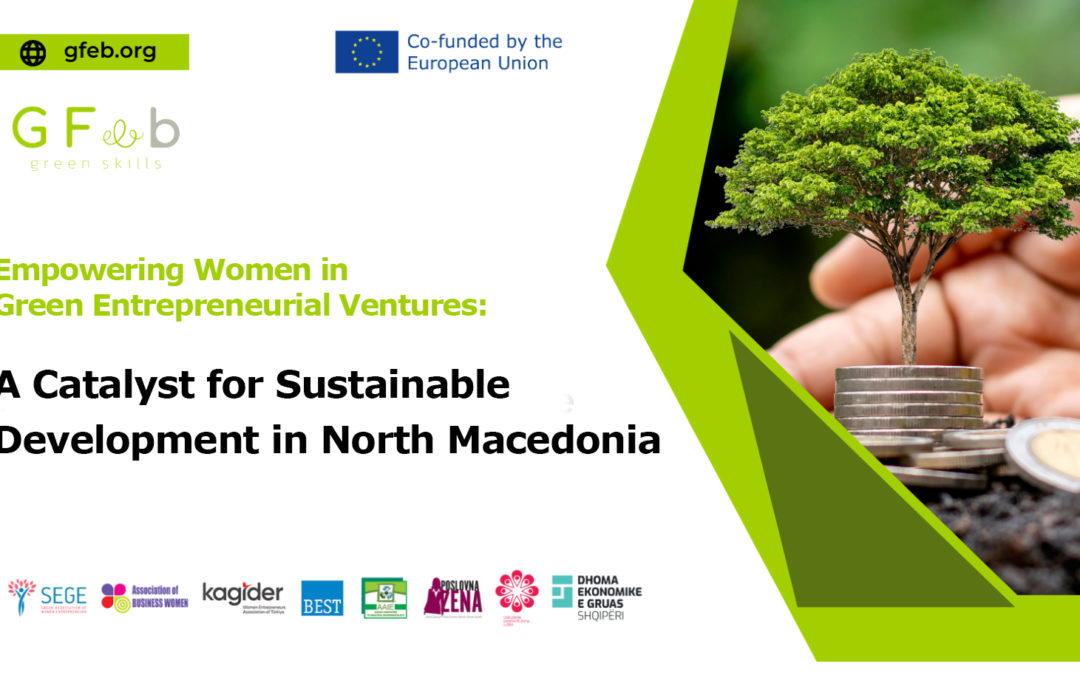Green transition of businesses is the conduct of business activities taking into account the protection of the environment, that is, it means planning and realization of investments in several areas, namely: energy efficiency, use of renewable energy sources, support of research and innovation, ie directing the overall operation of businesses to create the so-called circular economy.
In the dynamic landscape of entrepreneurship, the role of women in driving innovation and sustainability cannot be overstated. Across the globe, women entrepreneurs are breaking barriers, reshaping industries, and leading the charge towards a more sustainable future. In North Macedonia female entrepreneurs are making waves in the realm of Green Entrepreneurial Ventures, bringing fresh perspectives and innovative solutions to address environmental challenges. Women in the world and North Macedonia are forging ahead, undeterred in their quest to make a positive impact on the environment through entrepreneurship. Their determination, resilience, and creativity are driving meaningful change and inspiring others to follow suit.
Based on the United Nations Sustainable Development Goals, North Macedonia is preparing activities for access to financial resources with which they will be financed projects for green development (which will also contribute to the green transition of the businesses of women entrepreneurs). In 2022, an Instrument was established for green financing (GFF) within which North Macedonia is selected as one of the top ten programs according to the global Common Fund for the Sustainable Goals development (SDGs). The selection is made based on the potential for significant achievement sustainable results, mobilization of significant co-financing from multiple sources and level of readiness for realization.
Furthermore, in 2023, accreditation activities were carried out at the national level in the Green Climate Fund (GCF). Namely, the Innovation and Technological Development Fund (FITR) is the first state institution appointed by the Government of North Macedonia (with a decision made by the Government) which will start the process for accreditation to the Green Climate Fund (GCF) and for that purpose an application has been submitted for accreditation. With the successful completion of the accreditation process, FITR will become the first accredited national institution that will enable greater access to finances from the fund intended for the realization of climate program priorities and encouraging innovative, green investments, with full ownership in the process climate financing and its better integration with national action plans for climate.
However despite the progress made, women entrepreneurs in North Macedonia still face challenges, including access to funding, networking opportunities, and mentorship. Still, efforts are underway to address these barriers and level the playing field for aspiring female entrepreneurs. Organizations, government agencies, and grassroots initiatives are providing support in the form of training programs, incubators, and financial incentives, empowering women to pursue their entrepreneurial dreams and make a meaningful impact on society.
The G-FEB project whose main goal is to improve the Vocational Education and Training (VET) system in the Balkan region by creating innovative, market-specific training solutions is exactly such a project that will help women in their green transition.
The project will address several challenges in the Balkan region and Turkey, including low-quality vocational education and training, unemployment rates, particularly among women and vulnerable groups, skill mismatch with the labor market, and a lack of green initiatives.

